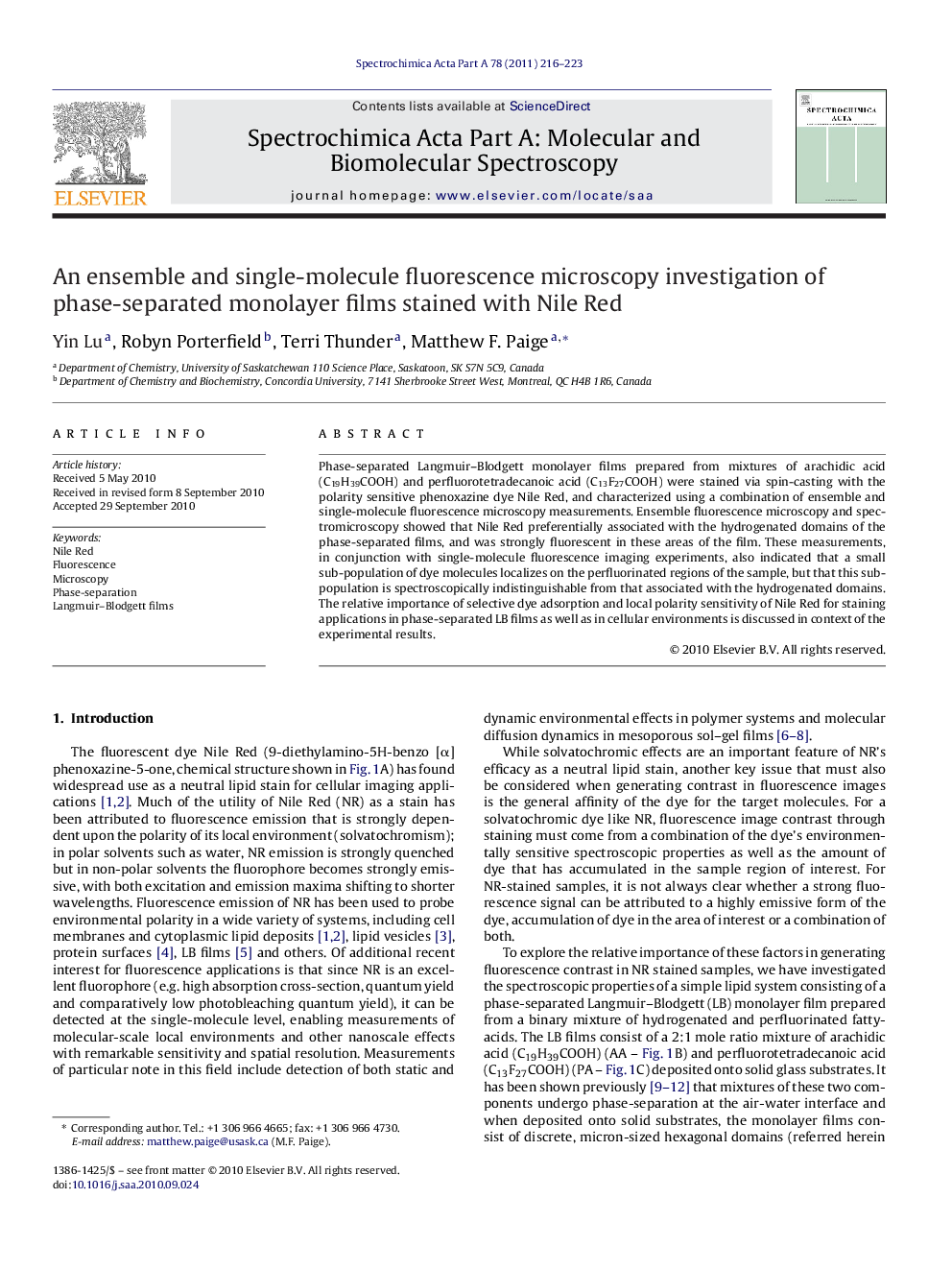| Article ID | Journal | Published Year | Pages | File Type |
|---|---|---|---|---|
| 1233733 | Spectrochimica Acta Part A: Molecular and Biomolecular Spectroscopy | 2011 | 8 Pages |
Phase-separated Langmuir–Blodgett monolayer films prepared from mixtures of arachidic acid (C19H39COOH) and perfluorotetradecanoic acid (C13F27COOH) were stained via spin-casting with the polarity sensitive phenoxazine dye Nile Red, and characterized using a combination of ensemble and single-molecule fluorescence microscopy measurements. Ensemble fluorescence microscopy and spectromicroscopy showed that Nile Red preferentially associated with the hydrogenated domains of the phase-separated films, and was strongly fluorescent in these areas of the film. These measurements, in conjunction with single-molecule fluorescence imaging experiments, also indicated that a small sub-population of dye molecules localizes on the perfluorinated regions of the sample, but that this sub-population is spectroscopically indistinguishable from that associated with the hydrogenated domains. The relative importance of selective dye adsorption and local polarity sensitivity of Nile Red for staining applications in phase-separated LB films as well as in cellular environments is discussed in context of the experimental results.
